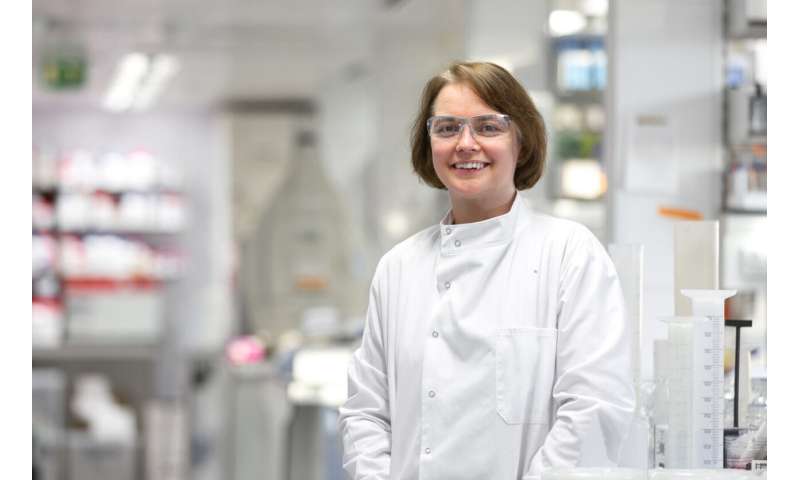New tool could transform study of cells and help find new drug targets

A new tool from Imperial and Molecular Dimensions could help biologists rapidly uncover valuable insights into the proteins found in cell membranes.
Imperial is working with the company to commercialize a high-throughput test that will help scientists to acquire fundamental knowledge about integral membrane proteins—components of living cells that are the targets for 60% of prescribed drugs.
Molecular Dimensions, a UK Caliber Scientific company that provides tools and resources to structural biologists around the world, will build on an invention by Professor Bernadette Byrne and colleagues in Imperial's Department of Life Sciences.
The company plans to turn it into a commercial product that could transform a key area of biological research and yield insights that can be translated into new medicines.
The crucial role of membrane proteins
Every biological cell is enclosed by a membrane made of lipid molecules and integral proteins. The membrane functions as a barrier that selectively separates the cell from its outside environment, and the proteins play key roles in the transfer of nutrients and chemical information into the cell, and waste products and toxins out of it.
Many prescribed drugs, whether they are treating hypertension, depression, or infectious diseases, work by altering or exploiting how integral membrane proteins function. Basic research into the proteins is therefore highly valuable for identifying new drug targets and enabling the development of life-improving medicines.
One key challenge in researching integral membrane proteins takes the form of a Catch-22. "To understand exactly how a membrane protein works, you have to take it out of the membrane and image it using techniques such as X-ray crystallography," explains Professor Byrne. "But by doing this you disrupt important interactions between the membrane and the membrane protein that you are trying to study."
These interactions can be restored by adding the proteins back to lipids, but it is not easy to tell which membrane lipids, which sometimes work together in complex combinations, are involved in interacting with a protein. The research can therefore be a resource- and time-intensive process of trial and error.
Transforming basic research
To meet the need for a more efficient way to research integral membrane proteins, Professor Byrne and her team have created a low-cost, high-throughput screen that can rapidly identify which lipids will best restore the stability and function of a given membrane protein.
Its invention drew on the team's hard-won insights into interactions between proteins and lipids. "We designed the screen using knowledge we have acquired through years of our own research, which has shown, for example, that some proteins interact specifically with the lipid PE [phosphatidylethanolamine] and others with cholesterol," said Professor Byrne.
"We also scoured the literature for examples of membrane protein analysis and drew on research by other teams. We additionally thought about combinations of lipids, because we know that in some cases a protein needs multiple lipids for stability and sometimes function too."
Having developed the screen, Professor Byrne collaborated with Molecular Dimensions to fine-tune and validate it. Following a commercial agreement with Imperial, the company will now use its commercial capabilities to prototype, test, and manufacture the screen as a commercial product before marketing and distributing it.
Molecular Dimensions expects the test to find customers among universities and pharmaceutical companies around the world and to help significantly accelerate research.
"This new screen is highly innovative and will be a great addition to the toolbox for all membrane protein researchers. Molecular Dimensions is proud to work with Bernadette and her team to make their vision a reality," Dr. Simon Tanley, UK Scientific Lead at Caliber Scientific, Sheffield HQ.
"Exploring membrane protein-lipid interactions has been incredibly challenging to date. I hope this screen will provide new insights into how protein-lipid complexes function at a molecular level and open up new avenues of research for many groups," said Professor Byrne.
Provided by Imperial College London